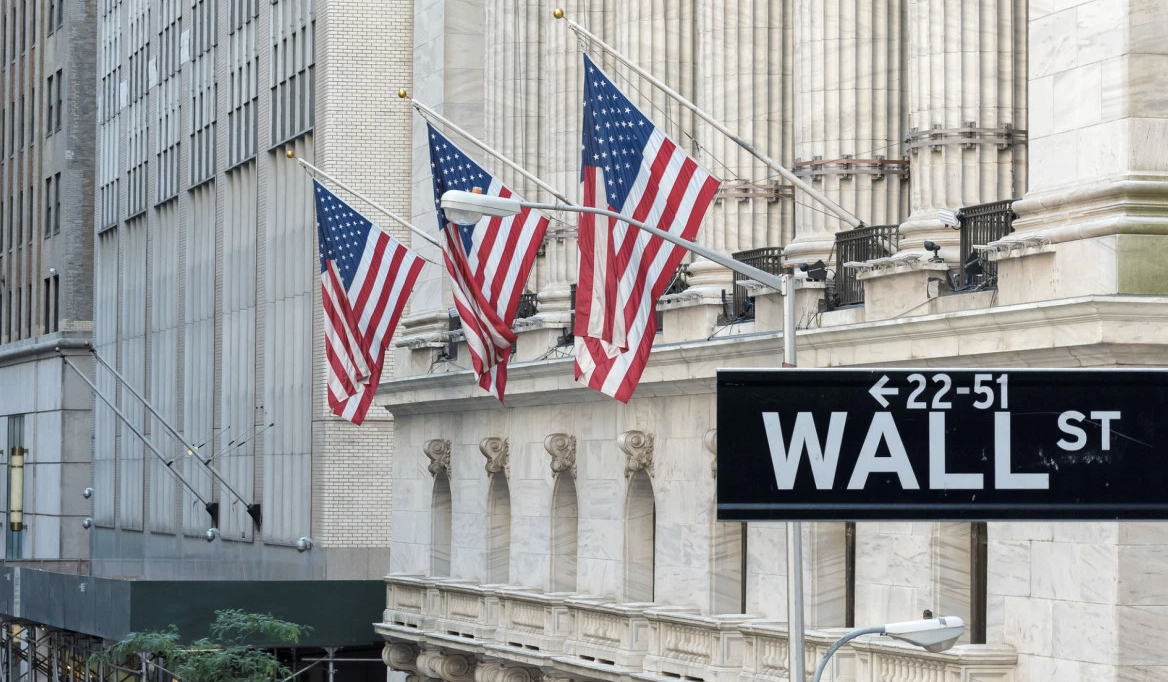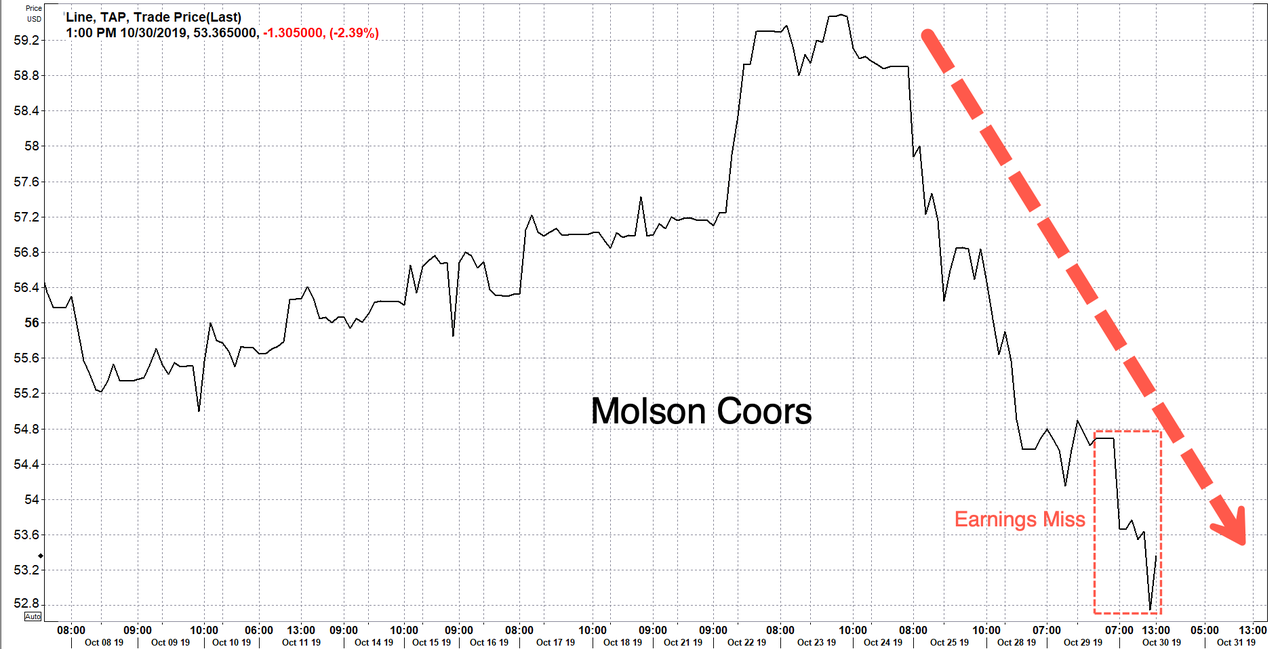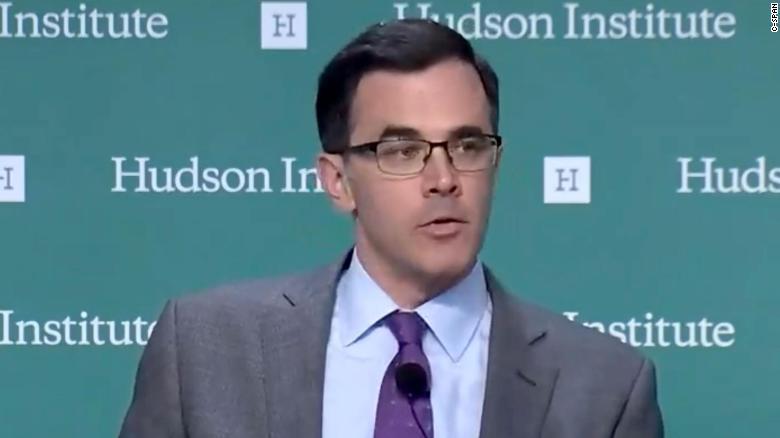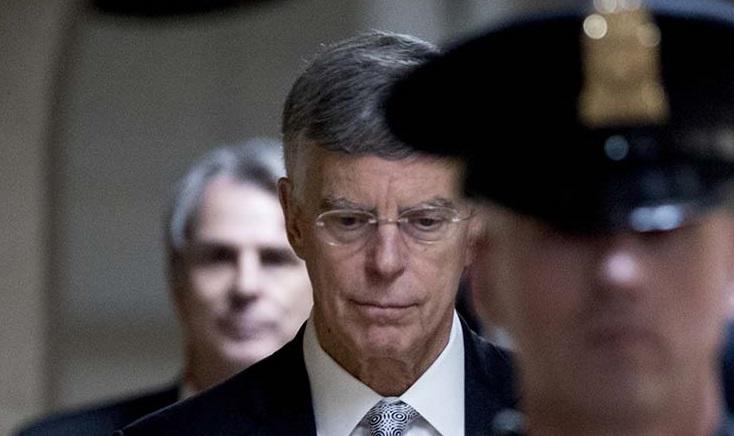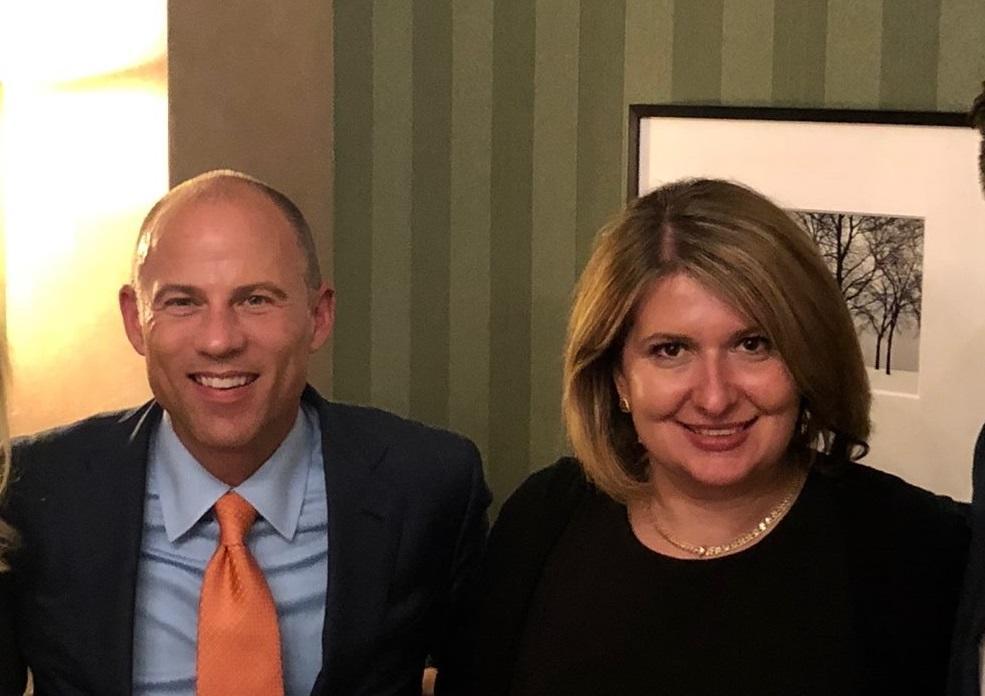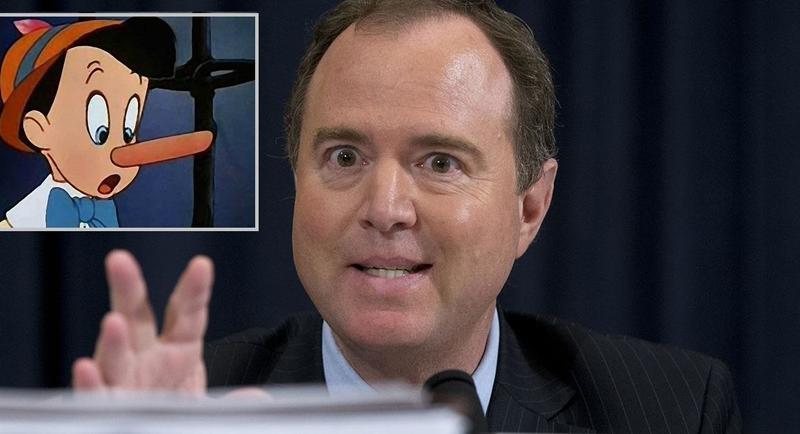Authored by Ramin Mazaheri via The Saker blog,
Because they are so ensconsed in their little bubble and because they profit so much from maintaining the status quo, Western mainstream media pundits don’t – or perhaps can’t – admit how Quantitative Easing policies have so quickly and so radically changed the financial system of the West and their satellites.
I imagine that most everyone reading this is already aware of what has transpired economically across the West over the last decade:
-
Elite-class asset (stuff rich people own – stocks, real estate, financial derivatives, luxury goods, etc.) prices have ballooned to pre-2008 levels.
-
Debt (which is, of course, another elite-owned asset), mainly to pay for banker bailouts and their usurious interest levels, has ballooned national accounts to incredible levels.
-
The “real” economy has only weakened, as proven by endemic low economic growth across the West and Japan.
As a pro-socialist who has no faith that capitalism seeks anything but inequality, I believe that creating and compounding these issues has been the unstated goal of Western policy over the last decade. But that’s not the main point: what cannot be denied is that those ARE the economic results of the West’s “easy money” policies – i.e., QE and ZIRP (Zero percent interest rate policy) for the 1%, and austerity for the 99% (all coins have two sides).
Similarly, I imagine that everyone reading this is generally aware of what will happen should the West stop easy money: obviously, once artificial demand is no longer being fabricated then these assets will plummet in value, with huge ripple effects in the “real” economy. The West will be right back to dealing with most of the same toxic assets they had back in 2007, but now compounded by a decade of more debt, more interest payments, and a “real” economy which was made weaker via austerity.
None of that is really “news” to a smart reader… but it is “news” to many dumb journalists.
This 10-part series uses as its jumping-off point the 2018 book Collusion: How Central Bankers Rigged the World by Nomi Prins, a former Wall Street executive who saw the light and is now informing on the crimes of Western imperialism-capitalism. Prins gives a thorough and chronological account of central banker doings in key areas – Mexico, China, Brazil, Japan and Europe – ever since US banker crimes set off the Great Recession in 2007. The essence of her thesis is that the US orchestrated collusion among the central bankers of many of the G20 economies and the Eurozone primarily in order to save busted US banks, and then also to maintain the 1%-enriching neoliberal policies of QE, ZIRP and no-strings attached bailouts.
What Prins keenly demonstrates is that since 2007 Western nations have continuously handed off the baton of QE and ZIRP between each other.
By coordinating on that policy, central bankers have effectively kept the 1% so awash in easy money and inflating assets that the 1% no longer cares that central bankers in a foreign country are manipulating the government where they live. This is what “globalisation” truly means in capitalism; it is very different from the socialist concept of internationalism.
It’s very simple for Prins to prove the G20 central banker collusion via the one thing the Japanese didn’t think of first (they created both QE and ZIRP) – temporary bilateral liquidity swap lines. It sounds complicated but it is easy to explain, and easy to understand their impact:
At the start of the crisis the US pushed the G7 banks, Switzerland and Scandinavia, and then other G20 banks, to create lines of credit with each other which allow them to move money to any place/nation where there is the mere potential of a volatile event which could create a negative impact on the stock or currency markets. This represents hundreds of billions of (taxpayer) dollars which essentially ensures that stock & currency markets never have to feel pain again: whether it is bad concrete economic data, or Fukushima, or Brexit – any major dip is now met with artificially created money which will fortify the position of the 1%.
These can be thought of as the junior versions of QE, and are no longer “temporary” – bilateral liquidity swaps are now a permanent feature of the Western banking system. Therefore, it doesn’t matter where new money is printed, only that it IS printed – it will go to prop up the 1%’s markets anywhere the West has its tentacles.
Thus, there is no real “market force” anymore – “just central banker force”. Their only goal is to perpetuate the status quo, not to improve the status quo, which is of course the essence of right-wing/anti-socialist/conservative ideologies.
There are no debt swaps for when you or I lose our job, but the 1% are “too big to fail”. However, what is even bigger than debt swaps are governments.
It’s not the inflated numbers but the source of the credit which is scary: the bond market
Prins quotes Bank of England leader Mark Carney in 2015 to illustrate this point:
“As I wrote to G20 Leaders, the structure of (the) financial system has changed significantly since the crisis. Virtually all of the net credit since the crisis has been from the bond markets and the size of assets under management has increased by 60% to $74 trillion.”
Those numbers are staggering. The 2017 estimate for worldwide total GDP was around $75 trillion. Global QE had reached $12 trillion in 2016.
These numbers are so significant that basically every single human should grasp what QE means, and yet how very little media ink is spilled explaining the scope, reach and everyday impact of easy money policies?
Carney pointed out that the West’s financial system has been dramatically deformed, and that the most urgent issue is the bond markets, and for obvious reasons:
The biggest actor in any system is not the “invisible hand”, nor the most talented CEO, nor the richest family – it is the government.
Just as the Pentagon is the world’s largest employer, just as the government employees’ union is always any nation’s largest union, just as the Chinese Communist Party (which is inextricable from their government) is running their economy, just as the Iranian government controls a greater percentage of their economy than even Cuba’s government – I could point to any nation and show that the government is the primary economic actor (with the exception of tiny tax haven nations). This is based on the answer to the questions: what is done by the government with money received by taxation and produced via printing?
This acknowledgment that – as long as there are taxes and printed money – the government must always, inescapably be the biggest actor is actually the very foundation of socialism, which posits that these two government powers can be used as tool of liberation for the average person and not as a tool used by the 1% to oppress. That is what makes socialist systems inherently different from aristocratic (or bourgeois/liberal/West European) and other oligarchical systems.
Far-right neoliberalism is a modern ideology – give credit where it is due – and thus they acknowledge this hugely positive role government can play… which is expressly why their dogma also insists on gutting government powers in order to prevent interference with the whims and happiness of the 1%.
However, QE does not represent anyone’s “government policy” – it represents the apex of “anti-government policy”. Nobody voted for QE, and it would never survive a popular and free vote. Western central banks are all independent from their government (in socialist dogma, there is a big fat “LOL” to that notion), and many governments rail against the policy of their own central banks!
Clearly, QE is a policy which has been undertaken via entities which are not at all subject to (Western, bourgeois, liberal, already-quite limited) governmental oversight. QE in Europe, for example, has the ECB ostensibly acting as the banker of the Eurozone’s citizens yet its client has not at all been national governments or the national taxpayer – it’s only client is multinational private banks. Thus, the ECB has not been working to protect national governments, but instead clearly subverts those interests to those of the 1%.
Nice system y’all got in the West….
No central banker will ever be tried for collusion, much less blamed in the Western press no matter how bad their results are, just as no incoming US Fed chief has ever lost their rubber stamp legislative vote. The penultimate paragraph of Prins’ book gives the key reality:
“Yet in the inevitable financial crash – these conjurers (of so much newly-printed money) will not be blamed. Or monitored. They are simply doing their jobs, even if those jobs have shifting definitions and nebulous goals.”
Back to the key point: We cannot forget that over the past decade these suddenly-arriving monies have been instrumental in propping up the government bond market, especially in the Eurozone. Governments cannot operate without paying salaries, and to do that they need to borrow money or print it. Insanely, QE has taken printed money and given it to banks so that banks could give it back to central banks in the form of buying national bonds: no value was created, yet so much was lost for the People.
Socialist or capitalist, we cannot argue what ARE the results: QE thus represents the ultimate economic victory of the “rentier” – he or she who adds no value, but only parasitically extracts value. Western economic-political ideology truly means giving private, self-interested bankers the ability to extract an endless flow of parasitic interest payments, and all because Western neoliberalism refuses to allow the government to play their logically dominant role in directly shepherding the economy.
Everybody should have known that European Central Bank QE was a fraud at least by 2015, when Greek banks were excluded from the bond buying party.
That was incredibly comic-tragic, because it showed how there was absolutely no solidarity in the Eurozone and the pan-European project, nor any common sense, nor any desire to really improve things – only the desire to make the rich even richer.
The simple math is: Central bankers resorted to QE because private banks had lost faith in each other, thus they roped in central banks to accept all the risk and losses. But the question which no one can answer is: So what happens when private banks lose faith in central banks?
The answer is: necessarily even more chaos than 2008, because even if Western central banks are “independent” from the government in neoliberal practice, they still have the full credit and powers apportioned to the government.
Thus, we no longer just have a “subprime bank” or a “subprime loan” crisis – the West has added a “subprime central bank” crisis for themselves as well, which is essentially the same as saying a “subprime government” crisis.
That’s why I wrote a 7-part series on QE back in September 2017, when I was sure they could not extend it more than one time. Little did I guess that QE could become permanent policy. The thesis of that series remains valid and the same in 2019:
Capitalism assures us that profit will be found at any cost by the 1% class – there is no sense of morality, only greed, backstabbing, bloodsucking, treason, laziness, covetousness, etc. National governments and the local banks and industries they support, and even partially own, are all risky bets which have only gotten riskier – do you think bond investors want to lose their money on them? When the government intervention of QE and ZIRP stop (i.e., free profit for banks) then banks will have to risk their own money to buy national bonds. This means no more playing nice: they will go back to doing what they began doing in 2011 – squeezing their profit out of the national bond markets, because globalised capital means no nation matters anymore.
Prins’ book gives us the chronological doings and details in Western countries which further supports this thesis.
Thus, the paradoxical non-conflict between government and bank in neoliberalism will eventually come to an even greater head than it did in 2012, when the Eurozone was about to split up and the true seed of Brexit was clearly set. The West’s refusal to cut out the middleman, the rentier, the parasite – which is what socialism does – means they will get bloodsucked to death.
The death of a corporation or a bank is not fatal to a nation, but the death of a government – a government which cannot borrow or print money, as in the Eurozone – will be fatal. Or maybe you believe QE really can be permanent?
When did QE go wrong?
“The FED didn’t just ‘save’ the US financial system, it altered the flow of capital everywhere,” writes Prins.
The problem – or rather the failure – of QE became evident with the internationally-condemned 3rd round of QE by the US.
In the US QE 1 was money to buy bad mortgage assets in November 2008. What I call “QE 1.5” came 4 months later, to buy debt securities in the credit markets. QE 2 was in November 2009 – $600 billion of longer-term US Treasury securities. QE 4 only arrived this month – the delay is explained by Prins’ title: collusion in easy money policies among many G20 nations.
QE was obviously misdirected to the wrong classes from the very start, but in 2012 QE 3 generated a lot of international anger from developing countries. I will explain their reasons shortly, but the primary reason is one which gets at the heart of the fact that capitalism can never evolve positively – the emperor has no clothes… (probably because “emperor-ship” is unmodern and immoral, and whoever heard of a “socialist emperor?”):
“None of the core central bankers knew what else to do. They believed or wanted to believe in their own hype and power – that they could save economies through the right combination of QE, intervention, and lending money cheaply to big banks and corporations, and that somehow this would trickle down into the real economy people live in day to day. They could not admit that their economies had been crippled by the US financial crisis and that the collusion of the Fed with allied central banks perpetuated risk in a grand conjured-money scheme.”
It is no coincidence that 2012 was the year of the European Sovereign Debt crisis. That was when it became clear to money managers that problems: were huge and getting huger; were already proven to dramatically exist, but were now additionally being proven that the decisions of 2007-12 had not fixed them; that these problems could not be resolved in a neoliberal system of economics; were merely being money-papered over; and that governments were going to go bust from all the debt, printing and interest charges.
Prins is correct, but she also lets the 1%ers off the hook – QE 3 is when the 1% fully usurped governments (and their inherent duty to serve the People) in order to keep funding their lifestyle and to indebt others. This is a failure inherent in capitalism – and not just the neoliberal variant – simply writ on a 21st century, multinational, digital scale.
Again, neoliberalism is a modern ideology – hats off to them for not living in the past. German Nazism was also a modern creation – clearly, “modernity” is not the highest virtue….
But Prins is correct that – because they reject socialist regulations, planning and ideals – the central bankers simply would not, could not, do anything else.
With QE 3 in 2012 the savvy observers in the developing world saw what QE and ZIRP also served as: a way to create easy money for Western bankers to buy up foreign assets and to entrap developing countries with unsustainable loans. That is something I imagine you have never read even a single time in a Western media – anti-Western accusations of “collusion” is merely called “business sense” in the West, after all. The unexplored, negative consequences which QE has wreaked on the non-QE world are detailed in Parts 3 and 4.
QE3 was when QE showed its true colors: several years of it had not fixed anyone’s economy. And because the QE system cannot be stopped without revealing that fact, the US decided it will get their allies to print as much as they can while they can in order to enrich their 1% chums and to ensnare foreigners via the free capital flows required in globalisation.
In 2012 (and at other times, as well) we assumed that a government’s bankruptcy – Greece, Italy, Spain, etc. – would end the QE game. However, QE has gone on so long that many predict that Germany’s private Deutsche Bank will be the bankruptcy which restarts economic chaos. And why not? Major private banks are still just as rotted out with un-shed-able assets as they were 10 years ago. Non-austerity policies likely could have saved some of these failed investments and improved the state of these stupid loans, but….
What is certain is that when government bond rates go back to floating on market rates instead of on the air of QE, that’s when chaos is sure to hit… and that’s why governments cannot end QE. 2019 is no different from 2017.
Conclusion: QE can’t end, and it could have been so much better
The amazing thing is not the idea of QE, but how stupid the West has been about it: if they had been smarter, then they could have purchased a golden future for their societies – instead they bought fancy paintings you can find images of for free online.
QE could have been a chance to smash neoliberalism forever by proving what we all know: the government must have a major role in the economy – why empower the parasitical middleman? That is a question asked by every hard-working farmer for quite some time…
The good news is: not everyone takes part of the West’s financial system. Iran, Cuba, Vietnam, North Korea and even – though many are loath to admit it – China. All these nations may trade with foreign nations, but that doesn’t mean their own domestic economies are based upon the exact same neoliberal capitalist principles as the US and Eurozone.
It is the goal of neoliberal/globalisation propaganda to deny that reality.
QE has changed the Western economic system because their central banks have become the toxic asset-owner which has become “too big to fail”:
“Even if fabricated money wasn’t achieving its stated purpose of real economic growth, taking it away would invoke chaos on the financial system. That was a possibility that central bank leaders did not want to risk, not on their watch.”
The reason we have had QE Infinity is because no central banker will be the one to end to QE. To do so would be to say: “I have been a fool – a capitalist banker. Let’s switch to socialism.”
What about journalists? Asking them to successfully campaign against 1%-er easy money/99%er austerity seems very difficult in the West, where the vast majority of the media has been foolishly privatised. I have never seen any honest series in The New York Times or any other top media regarding the obvious failure of QE and far-right economics. The best they can do is to blame an individual politician for cutting this government service or raising that single tax on the 99% – mostly they prefer to blame people who rail against capitalist globalisation, like the Yellow Vests. Of course, the monthlong tactic has been to ignore the Yellow Vests entirely….
That leaves us with only citizens: “Citizens were caught in a vortex between unpopular and ineffective policies. Governments seemed to forget they existed, while central bankers did not even pretend to be concerned.”
Perhaps Western citizens are, in their own mind, truly painfully living in a vortex created by right-wing forces? I feel certain that the source of this would not be primarily caused by their culture, history or religion, but in their current West European/liberal/bourgeois political systems.
